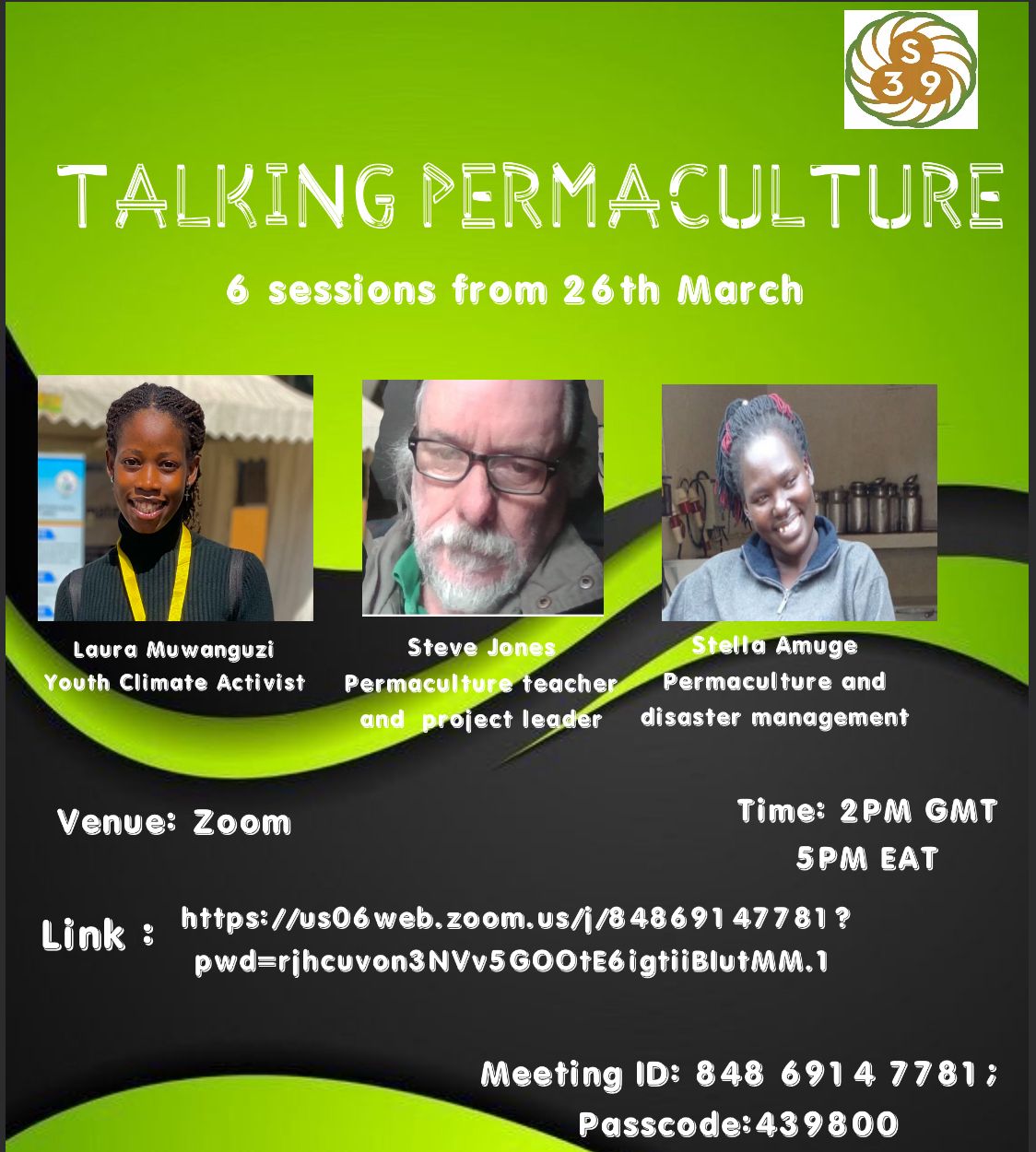
April 16th 2024
Zoom Link. Session is from
- 3pm BST
- 5 pm EAT
Join Zoom Meeting
https://us06web.zoom.us/j/85230690248?pwd=aRGr0pJ8fCGhCnRTJPlVW8fheWuOaF.1
It is free to attend
Permaculture check list
- Design to fulfill function
- Start from the back door
- Pathways and access
- Water
- Slope
- Strategic placement of key elements
- Work out from established areas
- Start small and take slow steps
- Frame your design as well as each step with the permaculture ethics
Summary
The meeting began with a discussion about potential visits to various projects, including those in Rajasthan, Calcutta, and a farm in North Wales. The group expressed enthusiasm for the networking opportunities and the potential for inspiration and communication about permaculture that these visits could provide. Steven Jones and Shernaz emphasized the importance of making the most of their time and learning from others’ approaches, while also considering the impact of these visits on their writing and communication efforts.
The group then engaged in a detailed discussion about the distribution and publication of a book. They expressed the need for an update and a review of the book, highlighting its accessibility and the effort put into its creation. The conversation also delved into the technical challenges faced during the book’s production, such as editing images and adjusting pixel density for printing. Additionally, the group discussed the distribution of funds for data and shared anecdotes about similar names causing confusion.
Steven Jones initiated a comprehensive exploration of permaculture design, encouraging participants to contemplate its relevance in their specific situations. He underscored the potential of human resources and the importance of waste elimination, particularly in the context of refugee settlements. Furthermore, he cautioned against the misuse of the term “permaculture,” emphasizing the ethical foundation of the practice and the need for genuine commitment to its principles. Throughout the discussion, Jones introduced a land-based permaculture design model, SADIMET, and emphasized the significance of holistic thinking and observation in the design process.
The meeting also addressed the importance of water in site design, the process of survey analysis, and the significance of observing and recording information before designing. Steven Jones discussed the importance of designing a community garden to produce yields for consumption and sale, as well as considering soil, wildlife, structures, and functions such as demonstration and training. He emphasized the need to identify key functions and list elements to fulfill those functions, using beekeeping as an example. The meeting also included insights from Simon Peter, Cristy Abbott, Laura Muwanguzi, Godfrey Opolot, and Stella Rose Amuge on their experiences with permaculture implementation and the challenges faced in their respective regions.
Chapters & Topics
- Discussion on Potential Visits and Networking Opportunities0:02
- Discussion on Book Publication and Distribution7:17
Action Items
- Andrelutula6@gmail.com will research and implement an irrigation system to address water scarcity during dry seasons.1:11:17
- Cristy Abbott will share the concept of hugelkultur to address water retention during droughts.1:14:23
- Gerald J will emphasize the importance of indigenous knowledge in permaculture designs and encourage its utilization.1:19:15
Key Questions
- How can we utilize indigenous knowledge to enhance our permaculture designs?38:31
- What functions do we want our design to fulfill and how can we integrate elements to support those functions?48:31
- What are the limiting factors in our design and how can we address them?1:02:48
- What are the specific challenges faced by communities in semi-desert areas like Kumi?1:11:17

